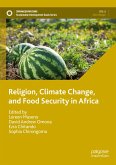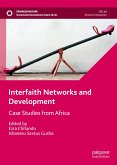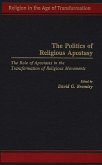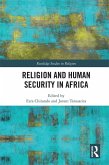During the last decades, the world has been facing tremendous political transformations and new risks: epidemics such as HIV/Aids have had destabilizing effect on the caretaking role of kin; in post-socialist countries political reforms have made unemployment a new source of insecurity. Furthermore, the state's withdrawal from providing social security is taking place throughout the world. One response to these developments has been increased migration, which poses further challenges to kinship-based social support systems. This innovative volume focuses on the ambiguous role of religious networks in social security and traces the interrelatedness of religious networks and state and family support systems. Particularly timely, it describes these challenges as well as social security arrangements in the context of globalization and migration. The wide range of case studies from various parts of the world that examine various religious groups offers an important comparative contribution to the understanding of religious networks as providers of social security.
Dieser Download kann aus rechtlichen Gründen nur mit Rechnungsadresse in A, B, BG, CY, CZ, D, DK, EW, E, FIN, F, GR, HR, H, IRL, I, LT, L, LR, M, NL, PL, P, R, S, SLO, SK ausgeliefert werden.









